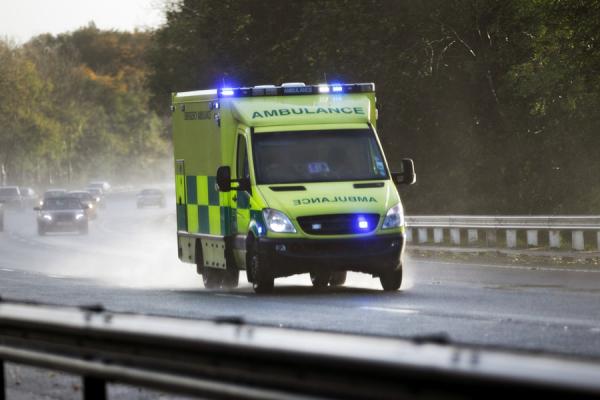GMB call on NHS Chief Exec to heed warning on scrapping 4-hour A&E target

“These are the front line professionals who know what they are talking about”, says GMB Southern
GMB have called on the NHS Chief Executive Simon Stevens to heed the warning of the Royal College of Emergency Medicine (RCEM), and pull back from scrapping the 4-hour A&E target.
The Royal College of Emergency Medicine have written to Simon Stevens [See below for full copy of the letter]. In the letter the college said:
"I would have thought that no-one wants to go back to the days of endless hours of waiting in A&E departments. Removing the standard will do this and hide the true scale of problems within our health service. The only ones who benefit from this are Ministers and NHS Managers, and certainly not patients."
The Four-Hour Standard was introduced to the NHS in England in 2004 to combat crowding in Emergency Departments, and has seen waiting times reduced since its introduction.
Paul Maloney, GMB Regional Secretary said: "GMB urge the NHS Chief Executive to heed this warning from the Royal College of Emergency Medicine and retain this important 4 hour A&E target.
"These are the front line professionals who know what they are talking about. The Chief Executive should listen to them for the good of the public who depend on the National Health Service."
Contact: Paul Maloney 07801 343839 or Helen O’Connor 07506 711574 or GMB Southern Press Office 07970 114762
Notes to Editors
1] Royal College of Emergency Medicine - Emergency Medicine Briefing: Making the Case for the Four-Hour Standard (September 2018) https://www.rcem.ac.uk/docs/Policy/Making%20the%20Case%20for%20the%20Four%20Hour%20Standard.pdf
2] Letter from Royal College of Emergency Medicine to NHS Chief Executive Simon Stevens (29 January 2019)
Dear Mr Stevens,
I fear that you are hell bent on undermining the benefits that the four-hour A&E standard has delivered to patients over many years, a decision you claim that so called ‘top doctors’ want.
It begs the question who are these ‘top doctors’ you quote? They are not from the leaders of the body representing over 8,000 people working in our A&Es, the Royal College of Emergency Medicine, who believe the target is vital for timely, high quality patient care.
They also cannot have spent much time with patients in emergency departments, as if they had they would know that the service is perfectly capable of triaging patients and determining who needs what and when. Minor issues are not the problem and can be dealt with quickly; major issues are always prioritised.
The only practical issue with the standard is when chief executives fail to see its achievement as a hospital wide issue and, it has to be said, too often there is a lack of support from other specialties. To this can of course be added the lack of beds, lack of staff and chronic underfunding of the NHS and social care. Get these right and it is very much achievable.
I would have thought that no-one wants to go back to the days of endless hours of waiting in A&E departments. Removing the standard will do this and hide the true scale of problems within our health service. The only ones who benefit from this are Ministers and NHS Managers, and certainly not patients.
The public has a right to know who these individuals are who want the target removed, not least given that in the NHS Plan with many laudable objectives, this attack on the patient interest stands out alone as the only cut in services proposed.
So Mr Stevens, who are these doctors with such contempt for the patient interest?
Yours faithfully,
Derek Prentice



